
CNN
—
Former New Jersey Gov. Chris Christie laid into Donald Trump in a CNN town hall Monday night, calling the former president “angry” and “vengeful” and accusing him of “vanity run amok” within the event’s opening minutes.
His comments set the tone for the night and made clear that Christie – who leaned into his own record as a former federal prosecutor – sees his role in the 2024 Republican presidential primary as being the chief Trump critic, willing to take on the front-runner while most other contenders duck confrontation.
Christie warned that if Trump wins another term, he would spend those four years focused on “settling scores” with his political enemies.
“He has shown himself, particularly in his post-presidency,” Christie said, “to be completely self-centered, completely self-consumed and doesn’t give a damn about the American people, in my point of view.”
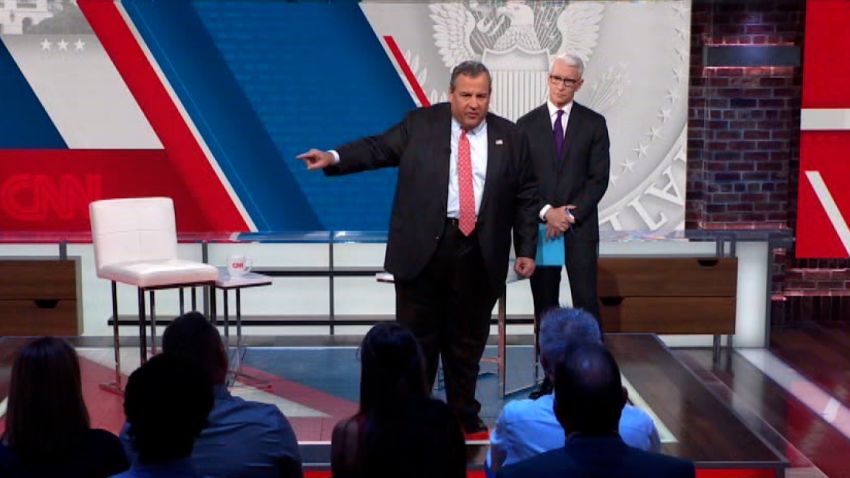
Christie reveals the exact moment he broke with Trump
He called Trump a “loser” and a “child,” comparing the former president’s refusal to accept his defeat for reelection in 2020 to a blame-deflecting tantrum from a child who had failed a test at school.
“It’s a child’s reaction,” Christie said. “I beg you to think about this. Don’t allow the showmanship to obscure the facts. The facts are, he lost to Joe Biden. And he lost to Joe Biden, in my opinion, because he lost independent voters.”
And, in a broadside at many of his GOP primary rivals, Christie urged voters to “think twice about the imitators, too.”
“I’m not imitating anybody,” he said. “This is an original, everybody.”
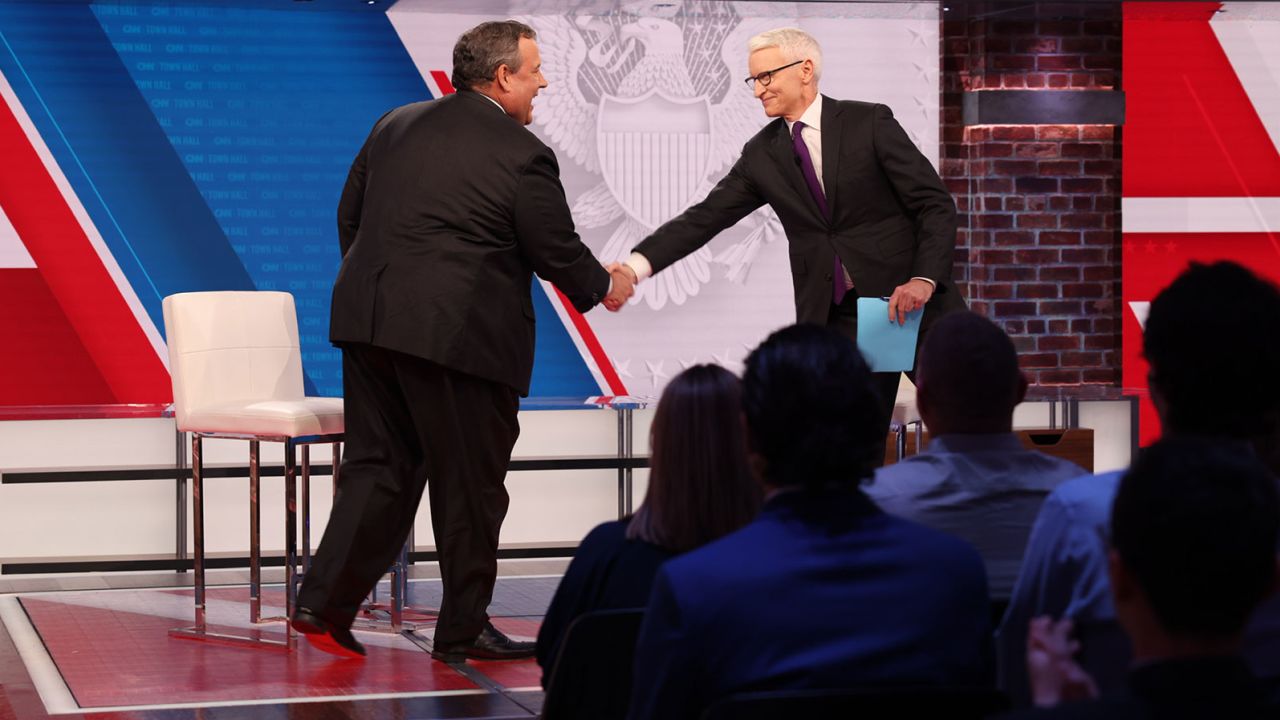
Here are six takeaways from Christie’s town hall, hosted by CNN’s Anderson Cooper at the network’s New York bureau:
Christie began the town hall by slamming Trump for the alleged behavior spelled out in the federal indictment against the former president. But he also had harsh words – and a message – for his other primary rivals.
“Whether you like Donald Trump or you don’t like Donald Trump … this conduct is inexcusable,” Christie said.
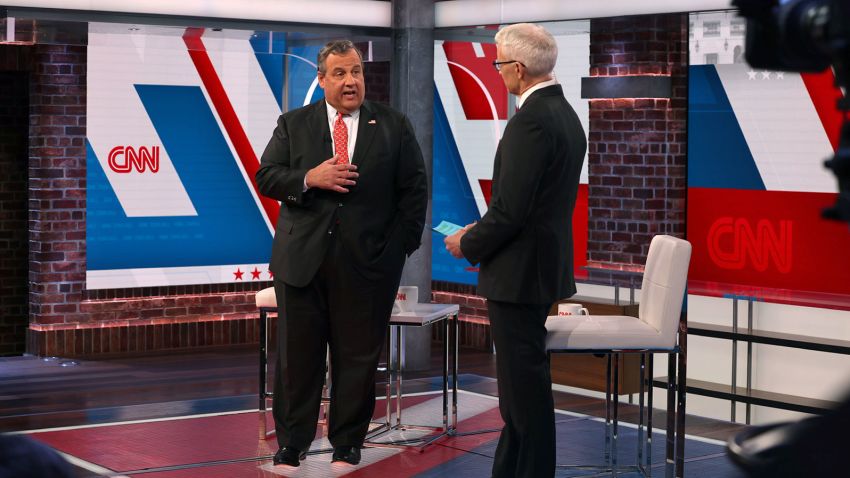
An ‘angry’ Trump: What Chris Christie thinks about a second Trump term
Asked what he thought was the most damning part of the indictment, the former US attorney for the District of New Jersey said there was too much to choose from.
First, Christie said, was the “nature of the documents” that Trump is accused of unlawfully retaining after leaving office. That trove is believed to include plans for war with Iran, details about US nuclear weapons and daily security briefings from his time in office.
After that, Christie pointed to the implication in the indictment that Trump lied and tried to involve his personal lawyer, who eventually ended up being made to turn over documents to prosecutors.
Third, he said, was the simple fact that Trump is “voluntarily putting our country through this” – a reference to the fact that Trump was repeatedly asked by the government to return the sensitive documents long before the issue escalated to a legal matter.
“This is all (Trump) saying … ‘I’m more important than the country,’” Christie said.
Christie also slammed the other GOP primary candidates for either hedging or taking Trump’s side by attacking the Justice Department.
“They’re playing political games with you,” Christie told the audience, arguing that his rivals were trying to stay close to Trump now in hopes of being able to compete for his supporters should he be forced out of the race.
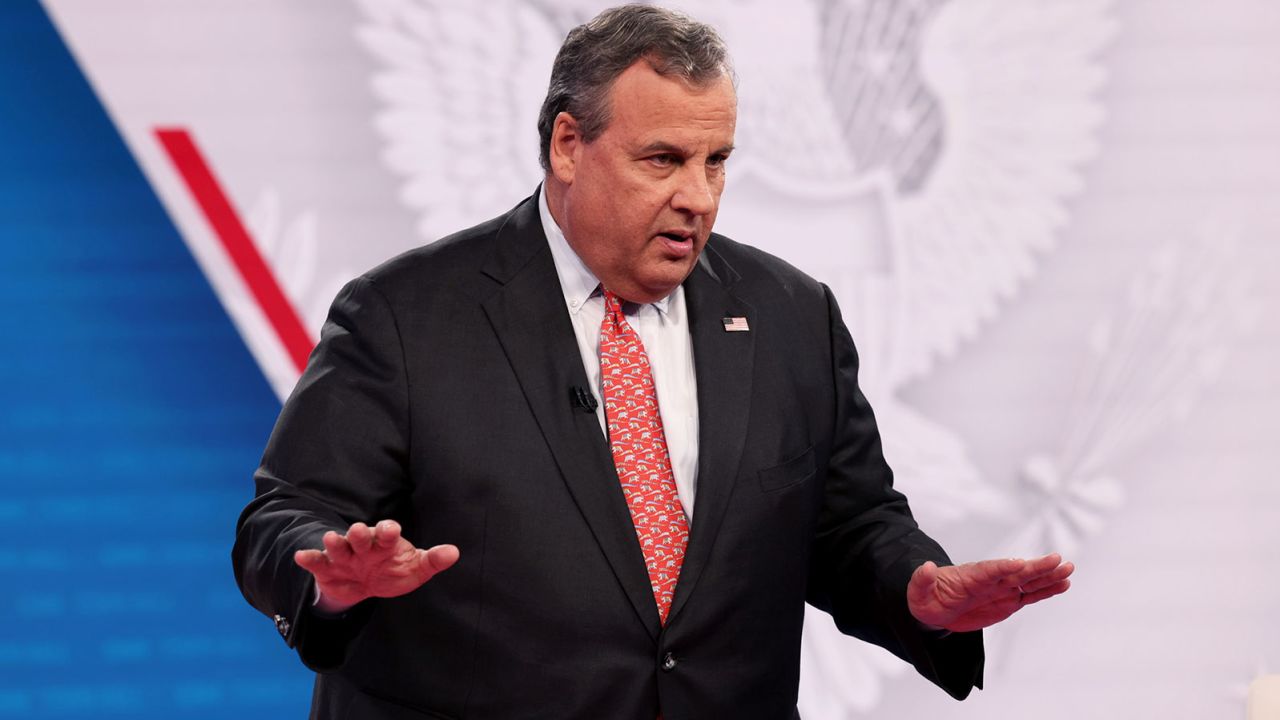
Christie has cornered the market on Trump criticism in the GOP primary, but on Monday, he also attempted to sell his own candidacy to voters.
“You’ve seen me operate. I don’t go and lay down,” Christie said in response to a question from New Jersey voter. “I fight, but the skill in this business is to fight and fight and fight and then know when the moment is to take your win and go.”
Christie – who made his name nationally through force of personality during his near-decade leading New Jersey – then spun through some of his accomplishments in dealing with Democratic legislative leaders in the heavily Democratic state, including lowering property taxes and backing charter schools.
“I’ve been there, I’ve done it. I’ve done it in the toughest state,” Christie said, allowing that perhaps New York, California and Illinois might be tougher on Republicans. “We are at least a suitable fourth,” he joked.
Christie also pushed back on an audience member’s concern that he would be too willing to compromise with Democrats, saying he’s ready now to go to Washington and “make it work for Republican values in the right way.”
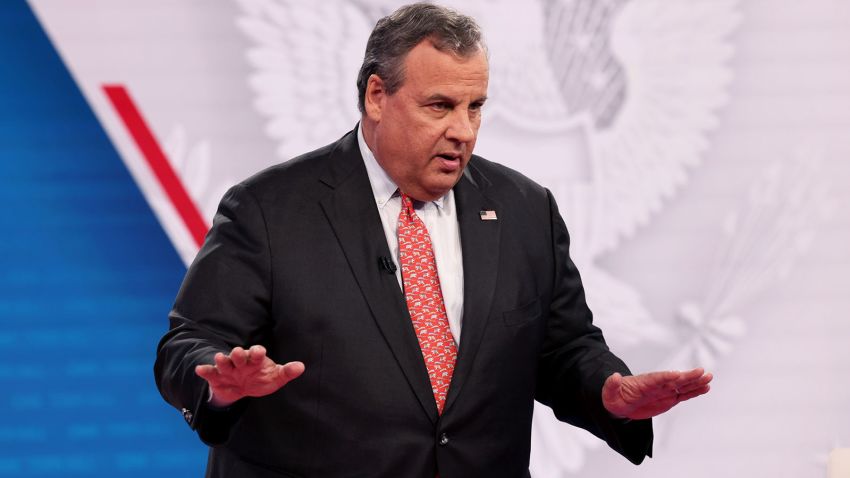
Chris Christie on his private conversation with Trump from his hospital bed
The wrong way, Christie said later, is Trump’s way – when a leader’s actions are dictated by anger.
“Sometimes you’ve got to be mad. Sometimes people make me mad,” Christie said, offering a slightly glossed-over analysis of his time in office, when he frequently went viral for his outbursts at political opponents.
“I don’t hold back,” Christie added, but he insisted Trump’s ire comes from a different, dangerous place that ignores the will and best interests of Americans.

Christie’s colorful anti-Trump rhetoric can sometimes obscure an even larger challenge facing his candidacy: He is and has always been, at least in the current context, a political moderate.
When asked about guns and mass shootings, Christie called it the most difficult public policy question in American politics, then hedged on an answer, discussing the importance of law enforcement, mental health and a willingness to compromise in pursuit of a solution.
Pressed for a clear position on abortion rights, Christie said that he supported the Supreme Court’s decision to overturn Roe v. Wade but that the federal government “should not be involved” in legislating around the issue.
Those answers were likely less than satisfying to the conservatives who make up the lion’s share of the GOP primary voter core.
Christie’s attempts to straddle those two worlds can be dizzying at times – like when he was asked who, in his view, was the bigger hazard to the country – Trump or Biden?
It would seem like a slam dunk, given the dire warnings and harsh criticism he’s leveled at Trump, whom he’s described as a threat to democracy.
“Look, it’s a coin flip,” Christie said, unwilling to take the core argument of his campaign so far to its logical conclusion.
Christie largely avoided addressing whether he supports new federal abortion restrictions in the wake of the reversal of Roe v. Wade, saying that the issue should be left to states to decide.
“We’re not at a consensus point,” he said.
Christie noted the differences between his home state of New Jersey, a blue state that does not restrict abortion access, and Oklahoma, a deep-red state that has banned the procedure in nearly all instances. He also pointed to Kansas, a red state where voters last year rejected an effort to amend the state’s constitution to allow state lawmakers to ban abortions.
He also didn’t criticize state-level efforts to restrict abortion rights, including Florida’s ban on most abortions after six weeks of pregnancy – a measure that has been an important marker for DeSantis’ presidential bid. Christie’s answer largely aligns him with 2024 rival Nikki Haley, the former South Carolina governor and United Nations ambassador who has also declined to say whether she supports a federal abortion ban after a certain number of weeks.
“I want to see that consensus, and then as president, I want to build off that consensus,” Christie said. “Let’s leave it to the states and if a consensus emerges, we’ll know it.”

In a break from Trump and DeSantis, Christie again said he would consider making changes to Social Security, including by cutting benefits to wealthy Americans and raising the retirement age for younger ones.
“We do need to look at means-testing Social Security,” Christie said. “If you’re Warren Buffet, do you really need the Social Security check?”
Christie acknowledged his was an unpopular position but argued that in the event of entitlement funds drying up, those with the resources should demand less from the government. Recalling an Iowa voter who told him years ago that she wanted to be paid back for what she’d paid into the system “no matter how much money I make,” Christie said the country needed to prioritize.
“Do you want tour money back at the cost of the person who won’t be able to eat, at the cost of the person who won’t be able to pay (for) shelter?” he said.
Christie also claimed that Trump told him, off camera during a 2016 primary debate, that he liked his Social Security plan, called it “really smart” but said he was too politically savvy to discuss it publicly himself.
Still, Christie rowed away from the rocks when asked what his solution would look like.
“You don’t change the retirement age for someone my age. I’m 60, I’m within eye-shot of that. So you don’t change it for them, but you could do a lot of good by changing it for people at a younger age,” Christie said, adding that he would “sit down with the actuaries” to price out a more detailed plan.
To young voters concerned about those benefits, Christie said, it was time to start preparing for a change.
“If you’ve got 20 or 30 years to plan for it,” he said, “that should be enough to get yourself ready.”

As Christie defended US support for Ukraine’s military in that country’s conflict with Russia, he described it as “a proxy war with China” and pointing out that Beijing is buying Russian oil and supplying Iran with drones.
He said that while US involvement in the war is unpleasant, “the alternative is for the Chinese to take over, the Russians, the Iranians and the North Koreans – a bad foursome.”
“For your children and my grandchildren, are they going to live in a world where China is setting the tone for this world? A communist dictatorship where they tell you how many children you can have? Where they tell you what you can think, what you can see and what you can hear? I don’t want that kind of world for your kids, and I don’t want it for my grandchildren,” the former governor said.
Christie’s comments came in response to a question about US spending on Ukraine’s war effort at a time of domestic inflation and federal deficits.
When asked later about if he’d reduce, maintain or increase tariffs against China, Christie said he would “make it part of an overall negotiation to reset our relationship with China.”
“The Chinese have taken advantage of our good nature, stealing our intellectual property, spying on us, causing trouble around the world, unfair trade deals, and it’s time for that to stop now,” Christie said.
He partially blamed the problem on TikTok, which is owned by a Chinese company, and its influence in the United States, saying he would ban it and likening the situation to Facebook and Twitter being banned in China.
If that were to change, “I’ll let TikTok stay. They don’t, TikTok goes, in the Christie administration,” he said. “They need to understand that we will be fair, but we won’t be chumps.”
